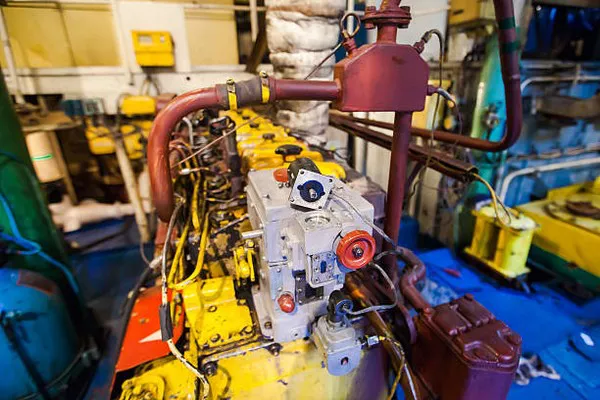Hospitals are critical infrastructures that rely heavily on consistent and uninterrupted power supply to ensure the safety and well-being of patients. In scenarios where the primary power source fails, hospital generators serve as a crucial backup, maintaining the operational capability of medical equipment, lighting, HVAC systems, and other essential services. The longevity of these generators is a significant concern, as their reliability can be a matter of life and death. This article delves into the lifespan of hospital generators, factors influencing their durability, and best practices for extending their operational life.
Understanding Hospital Generators
Hospital generators are typically designed to provide emergency power during outages. They are usually powered by diesel or natural gas and can range from small units to large systems capable of powering entire facilities. These generators are engineered to start automatically when a power outage is detected, ensuring minimal disruption to hospital operations.
Expected Lifespan of Hospital Generators
The average lifespan of a hospital generator can vary widely depending on several factors, including the type of generator, frequency of use, maintenance practices, and environmental conditions. Generally, well-maintained hospital generators can last between 20 to 30 years. However, this range is not absolute, and individual circumstances can significantly impact the longevity of these systems.
Factors Affecting the Lifespan of Hospital Generators
1. Type of Generator
Different types of generators have varying lifespans. Diesel generators, commonly used in hospitals due to their reliability and efficiency, tend to have longer lifespans compared to natural gas generators. Diesel engines are robust and can handle heavy loads for extended periods, which is crucial in a hospital setting.
2. Quality of Installation
Proper installation is critical to the performance and longevity of a generator. A poorly installed generator can suffer from premature wear and tear due to factors such as improper alignment, inadequate ventilation, or incorrect electrical connections. Professional installation by experienced technicians ensures that the generator operates within its optimal parameters.
3. Maintenance Practices
Regular maintenance is perhaps the most significant factor influencing the lifespan of a hospital generator. Routine inspections, oil changes, filter replacements, and system testing can prevent minor issues from escalating into major problems. A well-maintained generator can function efficiently and reliably for decades.
4. Frequency and Duration of Use
The more frequently a generator is used, and the longer it operates, the shorter its lifespan will be. In hospitals, generators are often on standby and only activated during power outages or for routine testing. However, in areas prone to frequent outages, generators might be used more often, leading to increased wear and tear.
5. Environmental Conditions
The environment in which a generator operates can also impact its longevity. Generators exposed to extreme temperatures, humidity, salt air, or other harsh conditions may experience accelerated degradation. Protective measures such as enclosures and climate control systems can mitigate some of these environmental impacts.
Best Practices for Extending the Life of Hospital Generators
To maximize the lifespan of hospital generators, healthcare facilities should adhere to the following best practices:
1. Implement a Comprehensive Maintenance Program
A structured maintenance program is essential for ensuring the reliability and longevity of hospital generators. This program should include regular inspections, preventive maintenance tasks, and timely repairs. Key components of a maintenance program include:
- Scheduled Inspections: Regular inspections to check for signs of wear and tear, leaks, or other issues.
- Oil and Filter Changes: Regular oil changes and filter replacements to keep the engine running smoothly.
- Load Testing: Periodic load testing to ensure the generator can handle the power requirements of the hospital.
- Battery Maintenance: Ensuring the batteries are charged and in good condition, as they are critical for the generator’s start-up process.
- Cooling System Checks: Verifying the cooling system is functioning correctly to prevent overheating.
2. Ensure Professional Installation and Commissioning
Proper installation and commissioning by qualified professionals are crucial. This ensures that the generator is set up correctly, minimizing the risk of operational issues and premature wear. The installation process should include thorough testing and calibration to align the generator’s performance with the hospital’s power needs.
3. Use High-Quality Fuel and Lubricants
The quality of fuel and lubricants used in the generator can significantly impact its performance and longevity. Low-quality fuel can cause deposits and corrosion within the engine, leading to reduced efficiency and increased wear. Similarly, high-quality lubricants ensure smooth operation and reduce friction, extending the life of engine components.
4. Monitor Environmental Conditions
Hospitals should take measures to protect generators from harsh environmental conditions. This can include installing enclosures to shield the generator from the elements, using climate control systems to maintain optimal operating temperatures, and regularly cleaning the generator to prevent the build-up of dust and debris.
5. Invest in Remote Monitoring and Diagnostics
Remote monitoring systems can provide real-time data on the performance and condition of hospital generators. These systems can detect potential issues early, allowing for proactive maintenance and repairs. By continuously monitoring critical parameters such as temperature, oil pressure, and battery voltage, hospitals can ensure their generators remain in optimal condition.
See Also How to Properly Hook Up a Generator: A Comprehensive Guide
Conclusion
Hospital generators are vital components of healthcare infrastructure, providing essential power during outages. The lifespan of these generators, typically ranging from 20 to 30 years, depends on various factors including the type of generator, quality of installation, maintenance practices, frequency of use, and environmental conditions. By implementing comprehensive maintenance programs, ensuring professional installation, using high-quality fuel and lubricants, monitoring environmental conditions, and investing in remote monitoring systems, hospitals can maximize the reliability and longevity of their generators.
In a sector where power reliability can directly impact patient outcomes, maintaining the operational readiness of hospital generators is paramount. Through diligent care and adherence to best practices, healthcare facilities can ensure that their generators remain dependable, providing critical power support for years to come.

